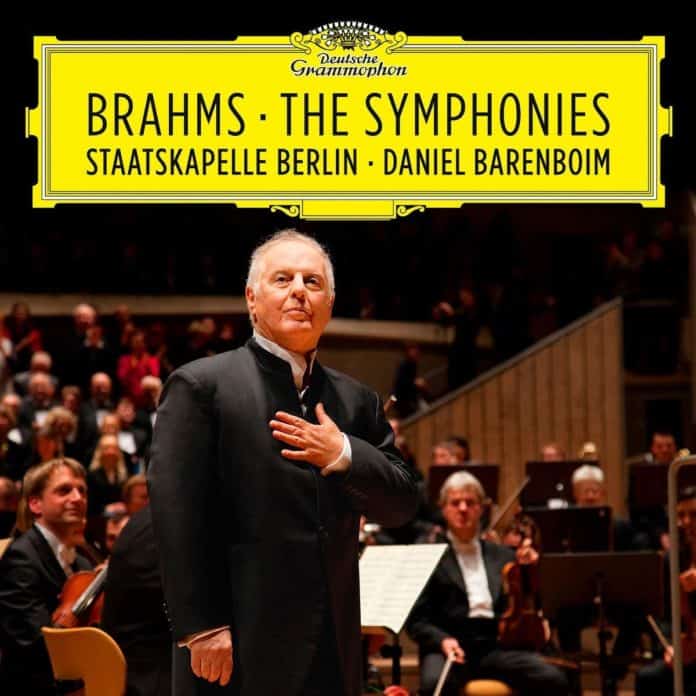This is Brahms as it should be. Bold, grand, shamelessly romantic. Of course, Barenboim and the Staatskapelle Berlin have given us first-rate symphony cycles of Schumann, Beethoven and lately Elgar, not to mention Barenboim’s 3rd attempt at the Bruckner symphonies. So it comes as no surprise that this new release of all four Brahms symphonies has all the characteristics of greatness.
First of all, let’s take the Staatskapelle Berlin. What can be really said about this orchestra without resolving to superlatives? Going back to 1570 this is indeed one of the oldest orchestras in the world. Their playing is marked by a golden tone, rich strings, deep powerful timpani, characterful winds and solid brass.
The fact that Barenboim divides his violin decks antiphonally adds to the purpose of this music (a practice that is unfortunately carried out by few conductors nowadays) and creates some nice effects especially in the last two symphonies. The tempi are slow overall, slower than most performances, but so gorgeous is the playing here that it is a pleasure to indulge in such fine music-making. Plus, Barenboim’s definitely not your standard conductor when it comes to these pieces: he gently shapes, nearly caresses, each phrase as if he were sculpting a fine statue of antiquity.
There are many highlights here. The underlying energy in the First Symphony, reinforced with some powerful percussion, or the lyricism of the Second with some of the most memorable wind playing. Then there is the splendour of the Third Symphony: just notice how Barenboim slows down in the climax of that great choral passage in the 4th movement (here beginning at 4:17), as if to clarify the different melodic lines, where each phrase is forcefully played with enough gravitas from the strings and brass. As Tovey says about the Third Symphony, “It needs either a close analysis or none at all”. Barenboim opts for the latter and gives us one of the most exceptional finales of the Third! No wonder then that some interpretative choices reminded me of Jochum in his celebrated recordings of these works. Af for the autumnal last work in this set, the Fourth, there is something magical about the hushed way Barenboim chooses to introduce this final symphony with a soft, hesitant opening before the winds begin their nostalgic interplay.
Play on Spotify:
spotify:album:3dxpdNAI5lupWVkYGzm7n5
Unfortunately, we live in an era where romantic music-making that looks back to the conducting traditions of Furtwangler, Karajan, Solti or Jochum is labelled as anachronistic. Which is a pity really because there are composers like Brahms (Bruckner is another) whose music asks for this kind of romantic approach. Thank God, Barenboim has the courage to carry on with this tradition —among the few who do (Thielemann is another example)— and manages this successfully, if one looks at the accolades received by music critics and reviewers alike. But even if this wasn’t the case, the music-making alone is at such a high standard that would prove Barenboim a victor. Yes, this Brahms perhaps reminds us a little of Bruckner. But what’s wrong with that?
While I wouldn’t want to be without Jochum or Karajan in this repertoire, if you like your Brahms performed the romantic way (and this is the pinnacle of Romanticism after all) Barenboim’s new set is as good as it gets.
Phenomenal playing from the Staatskapelle Berlin. Courageous conducting from Barenboim.
This is pure gold.
Rating: ***** (Gold)
Brahms, The Symphonies
Staatskapelle Berlin
Daniel Barenboim (conductor)
Deutsche Grammophon







